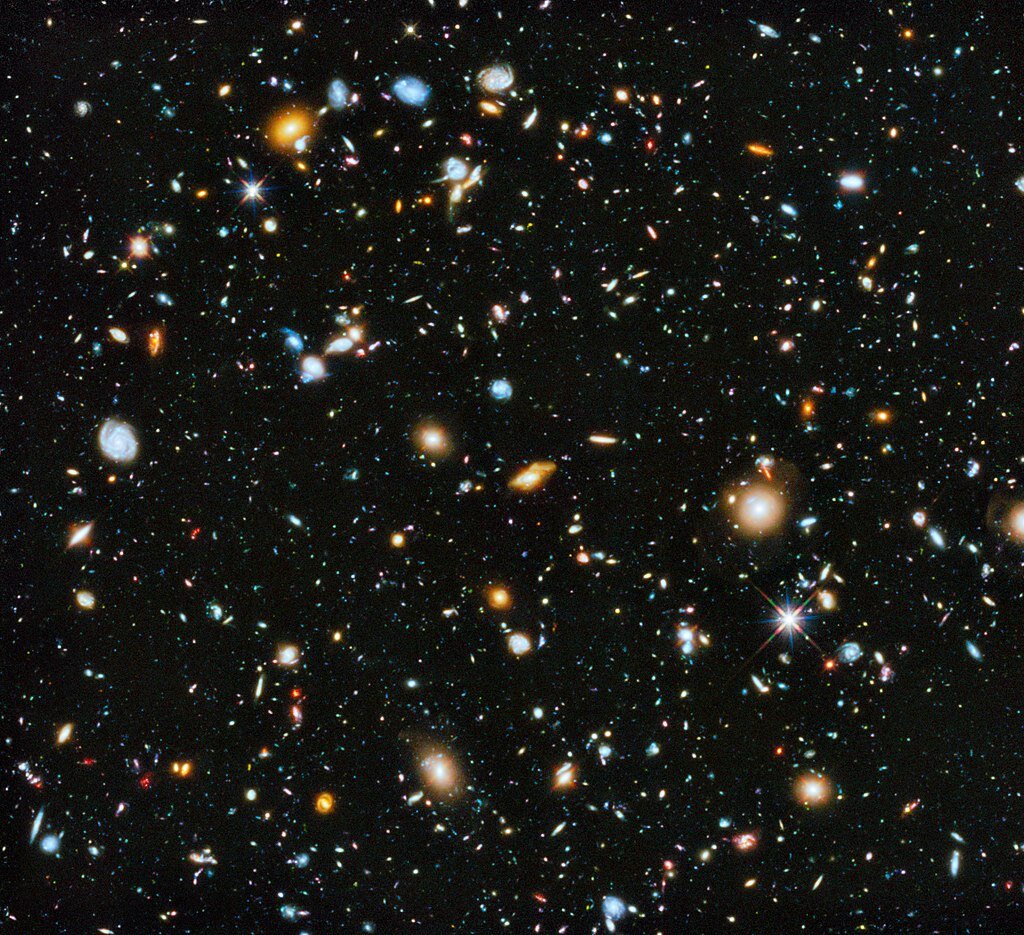nivek
As Above So Below
In a press release this week, ESO astronomers announced that they pointed the Multi Unit Spectroscopic Explorer (MUSE) instrument on the ESO’s Very Large Telescope (VLT) in Chile at a small spot in space known as the Hubble Ultra Deep Field (HUDF).
Located in the constellation Fornax, it was first observed by the Hubble Space Telescope from September 24, 2003, to January 16, 2004. That data allowed astronomers to look back 13 billion years and, combined with later observations using the Wide Field Camera 3 (WFC3), estimate that the small region contained about 10,000 galaxies.
Then came MUSE. It was installed on the VTL in 2014 and astronomers used it for about two years (137 hours of telescope time) to further study the HUDF and detect galaxies 100 times dimmer than before that emit Lyman-alpha radiation, an indication that they are extremely distant, young, low-mass galaxies.
Seventy-two of these galaxies were counted, with some estimated to have existed just 800 million years after the Big Bang.

As always with discoveries like these, if there’s one Lyman-alpha emitting galaxy (or in this case, 72), there’s bound to be more, so analysis of the Hubble Ultra Deep Field with the Multi Unit Spectroscopic Explorer will continue, along with planned observations using the upcoming James Webb Space Telescope (after delays, it’s expected to be launched in June 2019) and the Advanced Technology Large-Aperture Space Telescope (ATLAST) which is still in the conceptual stage.
Does it increase the probability of other life forms in the universe? Yes.
Does the fact that these newly-found galaxies are close to 13 billion years old mean the life forms will be older and more advanced than us? Older — definitely. More advanced – who knows?
If they are, Enrico once again gets the last words:
“Where is everybody?”
72 Newly-Discovered Galaxies Changes Odds in Fermi's Paradox
Located in the constellation Fornax, it was first observed by the Hubble Space Telescope from September 24, 2003, to January 16, 2004. That data allowed astronomers to look back 13 billion years and, combined with later observations using the Wide Field Camera 3 (WFC3), estimate that the small region contained about 10,000 galaxies.
Then came MUSE. It was installed on the VTL in 2014 and astronomers used it for about two years (137 hours of telescope time) to further study the HUDF and detect galaxies 100 times dimmer than before that emit Lyman-alpha radiation, an indication that they are extremely distant, young, low-mass galaxies.
Seventy-two of these galaxies were counted, with some estimated to have existed just 800 million years after the Big Bang.

As always with discoveries like these, if there’s one Lyman-alpha emitting galaxy (or in this case, 72), there’s bound to be more, so analysis of the Hubble Ultra Deep Field with the Multi Unit Spectroscopic Explorer will continue, along with planned observations using the upcoming James Webb Space Telescope (after delays, it’s expected to be launched in June 2019) and the Advanced Technology Large-Aperture Space Telescope (ATLAST) which is still in the conceptual stage.
Does it increase the probability of other life forms in the universe? Yes.
Does the fact that these newly-found galaxies are close to 13 billion years old mean the life forms will be older and more advanced than us? Older — definitely. More advanced – who knows?
If they are, Enrico once again gets the last words:
“Where is everybody?”
72 Newly-Discovered Galaxies Changes Odds in Fermi's Paradox

